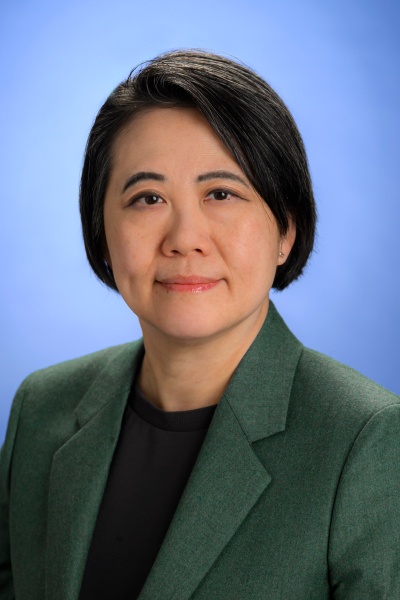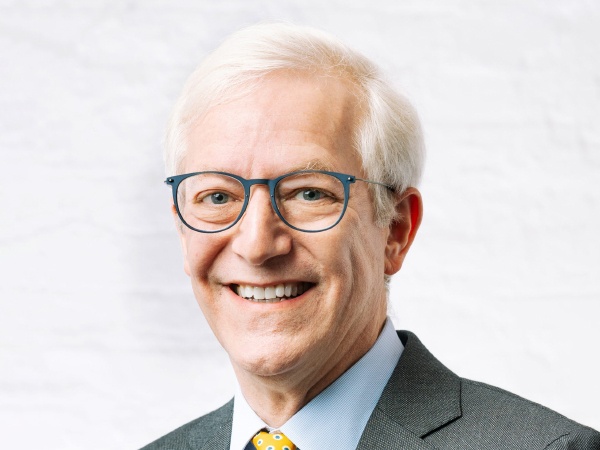Lillian L. Siu discovered her passion while perusing employment ads in the Journal of Clinical Oncology.
“I literally opened JCO, the Journal of Clinical Oncology, one day, and in the back there was an advertisement for a drug development fellowship in San Antonio, Texas. I read the description and felt, ‘Wow, this is really what I want to do. I want to develop drugs and bring new drugs to patients and bring them hope,’” Siu, director of the Phase I Clinical Trials Program and clinical lead of the Tumor Immunotherapy Program at University Health Network’s Princess Margaret Cancer Centre, said on the Cancer History Project Podcast. “It opened my eyes that this is definitely a field that I would love to be involved in—to take a drug from bench to bedside and then translate back to understand why it works or it doesn’t work.
“To me, that was, ‘Wow, I would love to spend my whole career doing this.’ And I did.”
Siu is also a professor of medicine at the University of Toronto, and a senior scientist, a medical oncologist, and the BMO Chair in Precision Cancer Genomics at Princess Margaret Cancer Centre.
The insight led to Siu’s nearly 30-year-long career in novel drug development and phase I clinical trials.
Through her work in early-phase clinical trials, Siu was among the first scientists to read out the signals of safety, pharmacology, and preliminary efficacy of therapeutic agents that ushered in a new era of cancer therapy.
And it’s quite a list: Epidermal growth factor inhibitors, monoclonal antibodies, antiangiogenic multi-kinase tyrosine kinase inhibitors, epigenetic agents such as histone deacetylase inhibitors and hypomethylating agents, PI3K-AKT-mTOR inhibitors, and immunotherapeutic agents like costimulatory molecules and checkpoint inhibitors.
She has been involved in the early development of over 50 drugs and has focused on ways to improve efficiency and scientific relevance of clinical trials.
Ultimately, her career landed her the 2024 David A. Karnofsky Memorial Award, the American Society of Clinical Oncology’s highest scientific honor.
Over the course of her career as a phase I clinical trialist, Siu watched as the field moved away from using “maximum tolerated dose,” the growing need for early-phase efficacy data, and the emergence of intermediate biomarkers.
Consistent throughout was the field’s desire to make clinical trials better for the patients, Siu said.
“There are many like-minded individuals around the world who are interested in developing clinical trials in a better way—more agile, more dynamic, and more efficient,” Siu said. “I’m very glad I went to that area, because when you’re dealing with drugs day-to-day on the hardcore, translational research, having some moments that you back off and think, ‘Are we doing all this right? Could we have done this better and more efficiently? And how can we get at the right dose with the fewest resources and not put patients at low or non-subtherapeutic doses, and at the same time avoid toxic doses?’ These are all really, really interesting thoughts and ideas.”
It is important to think long-term, even in the phase I setting, Siu said. Particularly now, when some drugs—larotrectinib and entrectinib, for example—get approved before phase III trials are conducted.
“You need to look far enough to think what happens to the end of the experiment, not just tomorrow, and be able to project from the end looking backwards and then work your way back. That makes more sense than to just think, ‘If I get through this experiment or this trial, I’m happy I can publish this.’ I don’t think that’s enough,” Siu said.
“I’m a phase I trialist, so I only have to figure out the dose and go to the phase II trialists and say, ‘Here’s the dose, test it,’” Siu said. “But life is not like this anymore, because many of the drugs now start with phase I and perhaps end in phase I, and then they get registered and approved. So, you have to sort of think about more like a phase III oncologist now in the phase I arena.”
Keeping with this thinking, Siu’s recent interests have gravitated towards developing surrogate endpoints for preliminary efficacy.
“Because drugs are now more active… there’s more interest to make go/no-go decisions early on, so we don’t subject patients to drugs that are not going to be ever helpful to them. With that, I think there is a need to have early readout,” Siu said. “For example, I’m very interested in the area of circulating biomarkers such as circulating tumor DNA, whether we can use changes in ctDNA early on, even in a phase I trial, to understand whether there is efficacy to move forward or not.
“In a phase I trial where patients are very heterogeneous, typically heavily pretreated with many lines of treatment, to see bonafide tumor shrinkage might be challenging. But I think having a molecular assay that allows us to see whether the tumor burden changes on a microscopic level such as with ctDNA is very attractive.”
Siu credits her success to a network of renowned mentors, but more importantly, to quality mentorship.
“I think it is important to have mentors such as Ian Tannock and Malcolm Moore, etc., not just because they’re famous, but because they care about their mentees’ careers,” Siu said. “They met with me. They would suggest, for example, if they had to give a talk but they couldn’t, or they thought that I was a more appropriate speaker, they would put me up for that kind of opportunity. Writing papers together, getting feedback from them.”
Ian Tannock, now emeritus professor of medicine and medical biophysics at Princess Margaret Cancer Centre and University of Toronto, had a teaching method that stuck with Siu.
“Ian may not like me telling the public this, but he had this ‘evil red pencil,’ we called it,” Siu said. “We would dread seeing back a manuscript that is from black turned to red—because it’s all red. You knew you didn’t do a good job when you got back your manuscript and it’s red and not black anymore, because of the evil red pencil. But that’s the opportunity for you to learn.”
Mentorship is more than about imparting knowledge, Siu said. It’s about passing on a way of thinking.
“You think about how giants like Malcolm Moore, etc., think, and after you do this a few times you start to say, ‘Hey, I think this is how they would think, but I’m going to even think more beyond that. I’m going to think one step further and challenge their thinking,’” Siu said. “I think that kind of iteration really helped me grow, in terms of being able to challenge my mentees. I think the most important thing when mentoring someone is not tell them what you think. It’s really to teach them how to think, and there comes a point where they are able to come up with their own ideas or challenge what you say.
“Then, I think, you’ve done something really successful, because you have now stimulated somebody to have their own original innovative thinking.”
Siu is continuing the legacy, albeit with modern tools.
“I don’t have an evil red pencil. It’s all electronic now,” she said.
Siu’s mentees may dread a red-lined document filling their screens, but they have a mentor that encourages them to push past such setbacks.
“Learn from every mistake or every challenge and rise above it and be tenacious,” Siu said. “Be persistent, because there’s never an end that is a bad ending. It is always a good ending if you put enough effort in it. Maybe not entirely the way you want it, but at least if you put in the effort, something will return to you that is worth your effort. I truly believe in that, and certainly I see that in my career.
“I don’t only have positive results, I have very often negative results, but it’s fun. Learning from your mistakes is half of the fun, and cherish that kind of moment to learn from it.”











